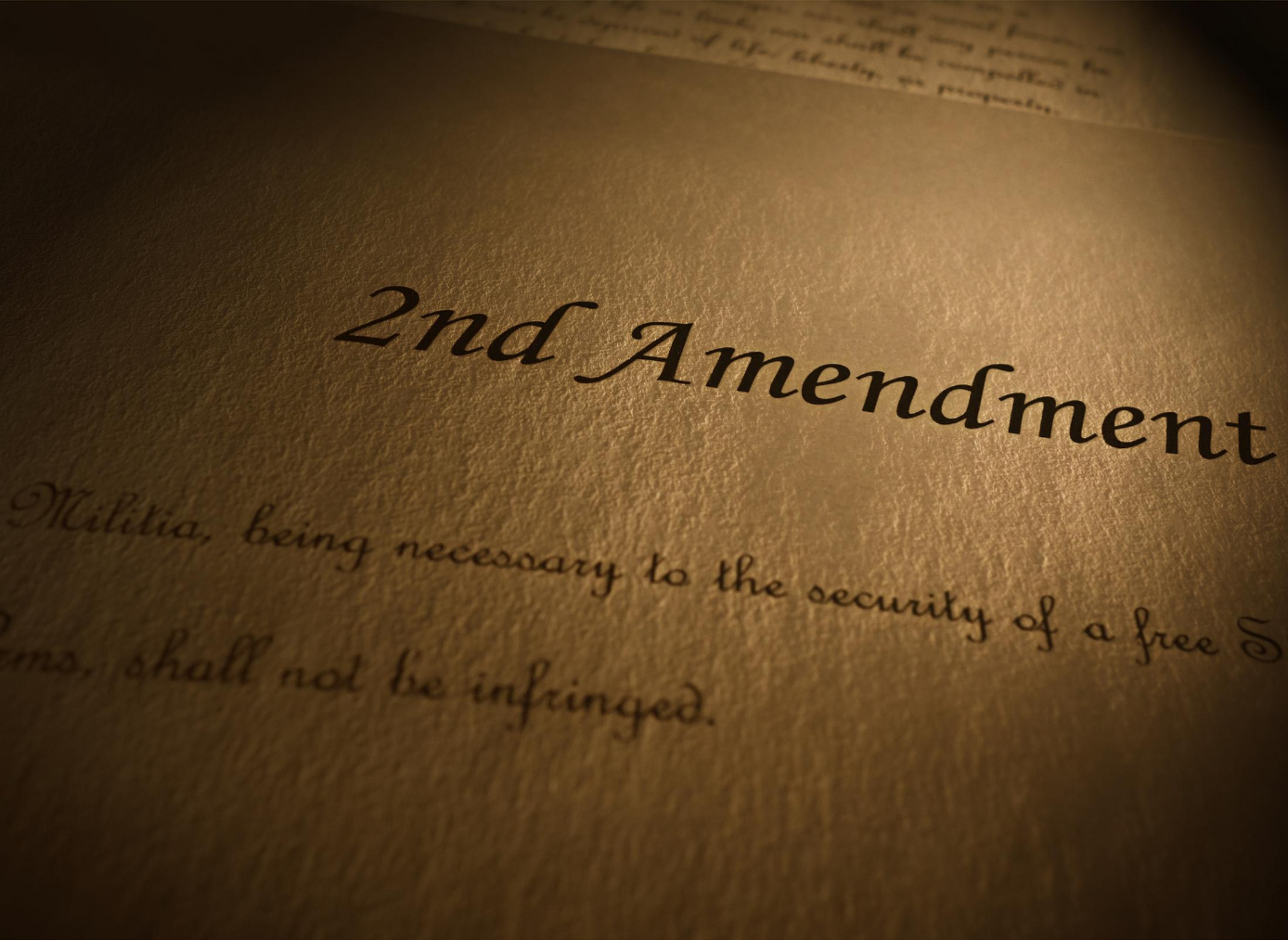Laws protect us when dangerous instruments are involved. This applies to driving a car as well as possession of guns. Arizona law defines a firearm as, "any loaded or unloaded handgun, pistol, revolver, rifle, shotgun, or other weapon that will or is designed to or that may readily be converted to expel a projectile by the action of an explosive," (A.R.S. §13-3101(4)). Some weapons are completely prohibited including bombs, grenades, devices designed to muffle a firearm, and firearms capable of shooting more than one shot automatically. (A.R.S. §13-3101 (8)).
Q: Who can own a gun or weapon?
A: Generally speaking, anything that disqualifies you as a voter or a juror, such as conviction of a felony, also legally disqualifies you as a gun owner. This is no coincidence – these three rights and duties are historically and philosophically related. People prohibited from possessing a firearm also includes any person who:
- has been found to be a danger to himself or others;
- has been convicted of a felony and whose rights have not been restored;
- is serving a term of probation for a conviction for domestic violence or a felony offense (A.R.S. §13-3101(7)); and/or
- is under 18 years of age and does not fall within any of the exceptions in A.R.S. §13-3111(B).
Q: How and where can I do my target practice?
A: There are designated areas and shooting ranges where people can engage in target practice. Be careful wherever you shoot a firearm. Be sure to check local laws and ordinances because cities and towns have the authority to regulate firearm possession in parks, preserves, and areas within a quarter mile of an occupied structure in which the owner has not given consent (A.R.S. §13-3108).
Q: Who can carry a concealed weapon in Arizona?
A: In Arizona, a United States citizen over the age of 21 who is not a prohibited possessor can carry a concealed weapon in public. Private businesses and public businesses can restrict people from carrying a concealed weapon onto their premises.
A person can also apply for a concealed weapons permit if they meet certain requirements (A.R.S. §13-3112(E)). A concealed weapons permit may allow you to carry a concealed weapon in states that require concealed carry permits.
Q: How and where can I legally shoot for target practice?
A: There are designated areas and shooting ranges where people can engage in target practice. Check local laws and ordinances because cities and towns have the authority to regulate firearm possession in parks, preserves, and areas within a quarter mile of an occupied structure in which the owner has not given consent (A.R.S. §13-3108).
Q: What is misconduct involving a weapon?
A: According to A.R.S. §13-3102(A), misconduct involving weapons can include:
- Carrying a concealed deadly weapon, except a pocket knife, without a permit if you are under 21;
- Manufacturing, possessing, transporting, selling, or transferring an illegal weapon;
- Possessing a deadly weapon if you are legally not allowed to have one;
- Selling or giving someone a deadly weapon if they are not legally allowed to have one;
- Discharging a firearm at an occupied structure in order to further the interests of a criminal street gang;
- Possessing a deadly weapon that has been defaced, the serial number scratched off;
- Unless specifically authorized by law, entering any public establishment or attending any public event and carrying a deadly weapon after a reasonable request to remove the weapon;
- Possessing a deadly weapon on school grounds; and
- Selling or giving control of a firearm to another person if you know or have reason to know that the other person would use the firearm in the commission of any felony.
Laws may have changed since the last time this article was updated. The current and most up-to-date laws can be accessed here.

